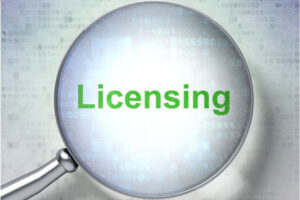You may not know what to expect when you receive notice of a disciplinary complaint from your professional licensing agency. In most cases, licensed professionals can informally resolve their disciplinary proceedings by agreement. However, when an informal resolution to the complaint is impossible, your case may need to proceed to a hearing before the Texas State Office of Administrative Hearings (SOAH).
An adverse decision in your professional licensing case can cause serious consequences that may endanger your career. Therefore, securing legal representation by an experienced Texas license defense lawyer at Bertolino LLP, can be critical from the outset of any complaint against you.
The Function of the Texas State Office of Administrative Hearings
The Texas State Office of Administrative Hearings (SOAH) is an independent state agency where other Texas state agencies, licensing boards, and other government entities can resolve some legal disputes through an administrative process. SOAH maintains a panel of administrative law judges (ALJs) or independent, neutral third parties who oversee and hear evidence in these cases.
The SOAH only gets involved when the parties to a disciplinary case cannot resolve the case informally by agreement. Most cases are resolved before they are ever transferred to SOAH for resolution through an informal settlement conference and/or agreed or board order. Only when the parties cannot agree on a resolution to a disciplinary complaint will the case go to the SOAH for a contested administrative hearing.
Administrative Hearings Before SOAH
Hearings before SOAH are administrative but follow the general procedures of a regular courtroom hearing. SOAH has its own set of procedural rules, and parties must also follow any rules or laws that govern the type of agency hearing that is taking place.
The licensee and the licensing board can introduce evidence, including documents and witnesses, to support their case. You can cross-examine the other party’s witnesses as you would during a regular court hearing. You also have the right to have an attorney represent your interests throughout the hearing and all stages of your licensing board proceedings.
In most cases, an ALJ issues a recommended decision containing findings of fact and conclusions of law after hearing evidence from both sides of the legal dispute. Typically, the ALJ issues this decision within 60 days, although that time may be shorter or longer as needed. Although these procedures differ somewhat from one licensing agency to the next, the ALJ forwards the proposed decision to that licensing agency. In some cases, the ALJ’s decision recommends that the agency take certain disciplinary action against the licensee. Although the licensing agency gives deference to the ALJ’s recommendations, it is often the agency itself that ultimately decides whether to approve, modify, reject, and/or remand the decision for further proceedings by the ALJ. However, there are exceptions to this general rule. Some agencies permit the ALJ to make the final decision concerning a professional disciplinary complaint.
SOAH and Mediation
Even if you cannot resolve your case informally before reaching the SOAH, you may still be able to avoid an administrative hearing before an ALJ. The SOAH offers mediation services as an alternative to administrative hearings. Mediation allows the parties to negotiate with the assistance of ALJs, who are specifically trained as neutral mediators. In this manner, mediation allows the parties to control the outcome of the dispute, unlike an administrative hearing, where the outcome is uncertain for both parties.
The mediator often will schedule a confidential phone call with each party before the mediation begins. This phone call gives the mediator a chance to speak privately with each party about their goals for the mediation.
The mediator typically begins with a joint session between the two parties to the dispute and the mediator. At this session, the mediator will explain the mediation process and the ground rules for the mediation. Each party can make a short statement of their position, and the mediator or either party can ask clarifying questions.
Next, the mediator will meet or “caucus” with each party separately. If a party conveys confidential information to the mediator, the mediator will keep that information confidential. The only exception is if the party specifically permits the mediator to convey the confidential information to the other party. The mediator may continue meeting separately with both parties, extending offers and counteroffers between the two sides. They also may hold joint sessions as needed. The mediator can help each party keep its most important interests in mind and facilitate communications to allow the parties to achieve their goals in a mutually acceptable fashion.
If the parties can reach an agreement, the mediator will put it in writing, and the parties will sign it before ending the mediation session. However, the parties can still have an administrative hearing if mediation fails. Another ALJ, other than the ALJ who acted as the mediator for the case, will be assigned to the case. Your case then will proceed to a contested administrative hearing, just as if mediation had never occurred.
Click to contact our professional license defense lawyers today
We Will Protect and Defend Your Professional License
You can count on a Texas licensing board defense attorney at Bertolino LLP, to take all steps necessary to protect your license and career. We will investigate the circumstances that led to your disciplinary proceedings and devise the best strategy for your case. Don’t wait until it is too late for us to make a difference in the outcome of your case. Call us today at (512) 515-9518 or contact us online.
Call or text (512) 476-5757 or complete a Case Evaluation form






